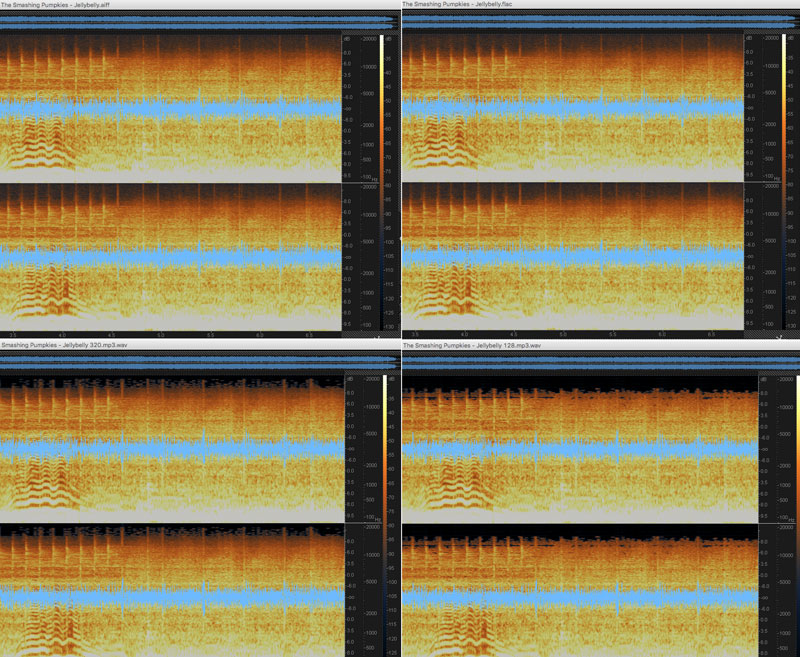I'm going to explain what happens when mastering mp3 or any other lossy compression format. But first, a bit of theory.
Lossy compression formats
The existence of lossy compression formats is justified for use in devices where it is important to take up little space regardless of sound quality, as when listening to music from a mobile phone in a noisy environment (on the train, on the street), or listen to music with poor quality systems such as laptop speakers.
The lack of storage space and the need to transmit information quickly led to what is called file compression in computing, consisting of the search and elimination of repetitive information on the one hand, and irrelevant on the other, to obtain a more compact file.
In order to reduce information in audio files, lossy compression is based on psychoacoustics: those parts of the audio that cannot be easily captured by our ears are identified, such as high frequencies or sounds that occur at the same time as others. These sounds are the ones that are then encoded at a lower quality than the rest.
This achieves compression rates of between 5% and 20% of the original file. Some lossy compression formats are: AAC, AC3, AMR, ATRAC, MP3, Musetrack, Real Audio, Vorbis, Wavepack, Windows Media Audio.
Lossless compression formats
Lossless compression, on the other hand, is based on removing repetitive information and using forecasting algorithms. The complexity of the information contained in sounds makes lossless compression very difficult, hence the low compression rate (50%-60%).
This type of compression can be used for professional applications because the original data can always be recovered as it was before it was compressed. For professional and audiophile applications, the highest quality raw material is required, and at least 48 KHz and 24 bits are used. This audio data is saved as wav (windows) or aiff (mac) files.


Mastering mp3 - Comparison of frequencies in the same song fragment in aiff, flac, mp3 at 320kbps and 128kbps. The loss of information is appreciated only in mp3
Mastering MP3
MP3 is a lossy compression format and is not the best format to work with, as it does not include all the original frequencies and sounds 100%. Depending on the rate and type of lossy compression, the result of mastering mp3 can be more or less acceptable. Whenever possible, make sure to submit your songs in a professional format so that your sound engineer can take the best possible material as a starting point.
If you want to know more about the quality of digital audio, read my article “QUALITY OF DIGITAL AUDIO IN COMPUTER MUSIC”


